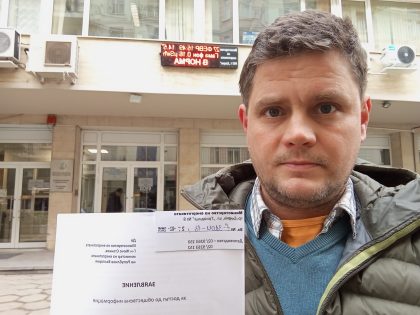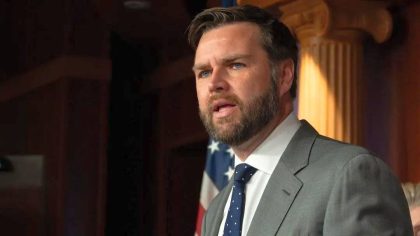Westinghouse to Build 1,000 MW Reactor Worth Over $5 billion
An American nuclear engineering company and Bulgaria Friday reached a long-sought deal paving the way for the European Union state to diversify its energy generation and nuclear fuel sources away from Russian to Western technologies while meeting the EU’s strict carbon-emission reduction targets.
Pennsylvania-based Westinghouse Electric Co. Ltd. said after seven months of negotiations it signed an agreement with Bulgaria’s state-owned nuclear power plant operator Kozloduy Nuclear Power Plant PLC giving the American company a 30% stake in a project company that aims to build a new 1,000 megawatt reactor worth over $5 billion.
Westinghouse will provide all of the plant equipment, design, engineering and fuel.
The project will be a major employment booster in the EU’s poorest member state by economic output per capita. The company said during the construction phase some 3,500 local workers will be employed on site with an additional 15,000 workers involved in the associated supply chain. Once the reactor is complete, it will employ up to 800 specialists.
Within the next year, Westinghouse will issue a tender for the plant construction in line with EU and Bulgarian public procurement legislation, a process that is expected to involve Bulgarian and global construction companies.
The deal comes amid a period of pronounced political turmoil in Bulgaria, where the cabinet resigned in July after being in office little more than one year. Next week a caretaker government will be appointed to lead the country to early parliamentary elections in October.
Michael Kirst, Westinghouse vice president for Central and Eastern Europe, said all major political parties were consulted on the deal, and additional agreements are subject to approval by the country’s future governments.
U.S. officials said the deal is an opportunity to expand economic and commercial ties between the U.S. and Bulgaria.
„Today’s agreement between the Kozloduy Nuclear Power Plant and Westinghouse exemplifies international partnerships that advance important interests of both Bulgaria and the U.S.,“ U.S. Secretary of Energy Ernest Moniz said.
Bulgaria enjoys long cultural and economic ties with Russia and currently there are two Russian-designed reactors in operation at the Kozloduy facility in northern Bulgaria along the Danube River. The country is also reliant on Moscow for gas and oil supplies.
The European Union for several years has urged member states to diversify energy suppliers to reduce dependence on Moscow, a request that is finding new urgency amid the Ukraine crisis and increasing levels of Western sanctions on Russia.
In this light, both the previous right-leaning government and the current outgoing left-leaning cabinet have worked with Westinghouse, majority-owned by Japan’s Toshiba Corp., to strike a deal for an alternative energy supplier.
Bulgarian Energy Minister Dragomir Stoynev Friday said developing the country’s energy infrastructure is a long-term issue that requires sustained efforts of multiple governments.
Financing terms, design, licensing and construction details still need to be worked out and approved before construction can begin. The investors hope to bring the new reactor on line around 2022.
Westinghouse’s stake in the project company during construction incentivizes it to build a plant that meets international and Bulgarian safety standards, is on schedule and within budget, the company said, adding that once construction is complete it will divest its stake so Bulgaria is sole owner of the asset.
Mr. Kirst said a full analysis of the competitiveness of the envisioned reactor, namely whether it is economically viable in future in a period when wholesale electricity prices are at historic lows, will be undertaken. All required preliminary work should be completed by next summer, at which point Bulgaria and Westinghouse together will be able to make the final decision whether to build, he said.
Financing for the planned reactor will probably come from export banks in the U.S., Japan and possibly the United Kingdom, Mr. Kirst said.
This agreement comes as EU state Hungary earlier this year made a deal with Russian nuclear company Rosatom in which the Russian side will fully finance the development and construction of two new reactors at the PAKS nuclear power plant in Hungary at a cost estimate to be in excess of €10 billion ($13.39 billion).
Write to Sean Carney at sean.carney@wsj.com
Corrections & Amplifications
„Bulgaria Signs Deal With Westinghouse on Nuclear Power Plant–Update“, which ran at 8:02 a.m. EDT, incorrectly stated the political parties’ involvement in the seventh paragraph. Michael Kirst said all major political parties were consulted on the deal.






